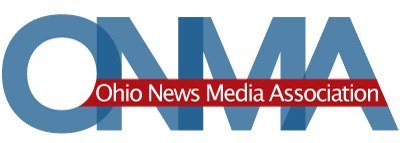Complete Story
03/16/2017
Editor alert: Help us fight closing of some accident reports
By Dennis Hetzel, Executive Director
Journalists understand immediately why a bill to ban access to the names of minors on police reports of school bus accidents is a bad idea.
This isn’t obviously clear to the general public and our Legislature. Instinctively, the reaction is the one I heard in an Ohio House committee hearing this week: “Well, of course, this information should not be released. The parents should have full control of the information.”
Several legislators, both Democrats and Republicans, added that the bill should be broadened to redact the names of minors on all accident reports.
So, this bill may be difficult to stop. To prepare, we are asking Ohio’s editors to send us specific, concrete examples of stories they have done that were made possible by having access to the names of minors on accident reports – especially school-bus accidents.
Story clips as well as any observations would be appreciated in the next seven days. Email to dhetzel@ohionews.org.
The sponsors are Rep. Stephen Hambley, R-Brunswick, and Rep. Jeffrey Rezabek, R-Clayton. The effort is well-intentioned. It’s also based on a single anecdote with no evidence -- at least to us -- of a serious problem occurring that outweighs removal of the presumption of openness that is supposed to attach to all Ohio public records.
We can match anecdotes. Consider the horrific school bus accident in Tennessee last year in which a Chattanooga driver was indicted after his alleged reckless driving led to the death of six children. Media reports included interviews with parents and children who talked about prior complaints against the driver. There’s now a flurry of civil lawsuits against the private company that operated the bus.
Hambley said in his testimony (and during our meeting with him) that he was approached by a constituent whose child was in a school bus accident. Since the incident report was a public record, this information became available to outsiders, including the media, personal injury attorneys, chiropractors and others. The constituents didn’t appreciate attorneys calling the home. In his testimony, Rezabek also brought up potential identity theft but offered no evidence that this is a problem specific to minors’ names in accident reports.
Hambley offered a striking statistic that is a story itself, and – at least to my mind – is more likely to support ONMA’s position. Quoting state data, Hambley said that there were more than 1,500 school buses involved in accidents in Ohio in 2014 and 2015.
So, in those two years, there were 1,500 accidents involving thousands of students, bus drivers, public buses and public highways. So, yes, journalists might want complete information as an important part of the reporting process.
We recognize that it’s difficult to explain to people outside the profession that reporting and publishing are two different things – and today’s turbocharged, anti-media mood makes matters worse. Our members do not harass kids or parents. What reporters might do is call a home or knock on the door and politely ask if they can talk to the family. If the answer is “no,” most reporters will leave a business card and say to contact if they change their mind.
And, it’s also a fact that some of those families may need to talk to a lawyer or to a chiropractor. Ask those families in Tennessee. Not all school districts and bus operators are forthcoming with information either.
When we met with Rep. Hambley, we also noted that any effort to keep this information secret is a fool’s errand. When the names are needed as part of the reporting process, good reporters simply will have to work harder to learn the names. Social media also magnifies our responsibility to debunk rumors and report accurately. In many cases, children’s names will be on the neighborhood Facebook page or other social media outlets in a matter of minutes – often with inflated and inaccurate information of names and extent of injuries.
I think we may face an uphill battle that could set a bad precedent. That’s why we are asking for your assistance to show demonstrable examples from Ohio of why it matters to the public to have access to this information.
If you would like to get even more involved, please look at this list of members of the Ohio House Government Accountability and Oversight Committee. Contact members in your area, particularly those with whom you have a relationship.




